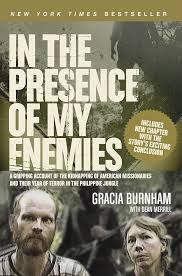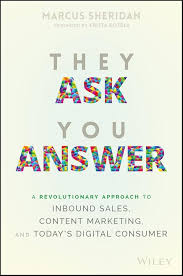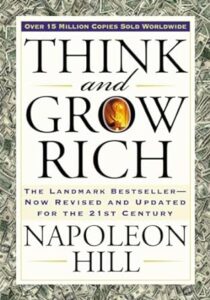“Don’t pick a niche. Embrace an obsession.”
That’s my favorite piece of advice from solopreneur and creator Justin Welsh.
I’ve spent this year obsessing over the nonfiction bestsellers and classics on my reading list. Here are some lessons from these memoirs and business books.

In the Presence of My Enemies
This is the true story of American missionaries Martin and Gracia Burnham, who suffered a year as hostages in the Philippine jungle. Recounted through the lens of their faith, the end of their ordeal is both devastating and inspiring.
Something to keep in mind
The story opens with a militant group banging on the Burnham’s door during their anniversary getaway. It hooked me right away and promised a gripping read – but the energy sagged when the authors stopped abruptly to dedicate a chapter to their backstory. I was reluctant to leave the dramatic kidnapping scene and wind back all the way to the Burnhams’ births.
When you’re juggling two narratives, consider weaving details of the backstory into your fast-paced events. Your characters will develop over time, you’ll maintain your pace, and you’ll keep your readers’ interest.
Something to emulate
Throughout her captivity, Gracia Burnham speaks with unflinching honesty about her grumbling, depression, and lack of faith.
I applaud the author’s honesty – so real and raw that she seemed unlikeable at times. And who wouldn’t be, in her situation? It takes humility to present yourself as you really are for the world to read.

They Ask, You Answer
Communication expert Marcus Sheridan urges leaders and sales teams to see digital marketing differently. From his business philosophy to five critical questions every business should answer, Marcus is all about laying down fears to honestly address what buyers want to know.
Something to keep in mind
I consumed this as an audiobook, and I didn’t know who penned the Foreword until it was finally read to me at the end of the 5-minute letter.
When you’re adapting your book to an audiobook, consider the reader’s listening experience. Reorder the elements to bring clarity, like naming the author of the Foreword for context before diving into a long letter.
Something to emulate
That detail aside, They Ask, You Answer is an example of everything right about a business book. Marcus narrates his book himself, gains early reader buy-in, and generously shares tools and resources.
Marcus had me at his personal success story, and he set out clear benefits for his readers: “We have fun instead of fear and frustration. We have hope instead of helplessness. We are proactive instead of reactive. We have a mission instead of a position.”

Think and Grow Rich
Published on the heels of the Great Depression, the classic self-help book by Napoleon Hill focuses on mindset as the key to wealth and abundance. Hill set out to change how readers think about money, people, psychology, and themselves.
Something to keep in mind
I added this to my reading list when a leader said its principles were the foundation for his success. While I was intrigued to learn about early business dealings by industry greats like Charles Schwab and Andrew Carnegie, I felt removed from the era and the contemporaries the author spent a lot of time talking about.
Also, Hill mastered the art of social proof by name-dropping people who exemplified the principles in his book. He understood how to leverage others’ reputations to prove his points. But I felt he overused it. All the examples tired me out. Be cautious about overusing social proof in your book.
Something to emulate
He ends the book by sharing the awkward secret to his success: holding imaginary, hours-long meetings with people he admired. Whether readers adopt the practice or not, it takes courage to print things that will stir judgment.
Ultimately, Think and Grow Rich illustrates that timeless wisdom never goes out of style. “Thoughts are things,” Hill writes. Also: “Success needs no explanation. Failure permits no alibis.”

Night
Night is the horrific retelling of 15-year-old Elie Wiesel’s experiences in concentration camps with his father near the end of the Second World War. The title captures the endless despair and hopelessness that defined his time in Auschwitz.
Something to keep in mind
Initially rejected by more than 15 publishers – they didn’t think the market was ready for such a graphic memoir – it was finally published because a friend and fellow writer urged Elie to persist.
So you’re in good company if you’re facing rejection by traditional publishers. It may take persistence, patience, and support to land a traditional publishing deal.
Something to emulate
The casting of the audiobook narrator was spot-on. His age and the texture of his voice made it feel like Elie was in my ear. Select your audiobook narrator just as carefully.
Also, Weisel’s 1986 Nobel Peace Prize acceptance speech is included in the book. In it, he said,
“I knew that I must bear witness. I also knew that while I had many things to say, I did not have the words to say them. Painfully aware of my limitations, I watched helplessly as language became an obstacle . . . Only those who experienced Auschwitz will know what it was. Others will never understand. And yet one could not keep silent, no matter how difficult it was to speak. And so I persevered.”
Understand that sometimes words fall short. Your memoir may never feel perfect. Unfortunately, I’ve seen authors work right to the finish line but not be able to cross it. If you’re tempted to wait for perfection, remember Elie’s experience.
Persevere. And then bear witness to your story.

Final Thoughts
I enjoyed other wonderful bestsellers and classics this year, including Educated by Tara Westover, The E-Myth Revisited by Michael Gerber, and The Color of Water by James McBride. Each taught me something notable.
What was the best book you read this year? I’d love to add it to my list.
As we close this year and look ahead to the next, I wish you a tall, new stack of good reads!
